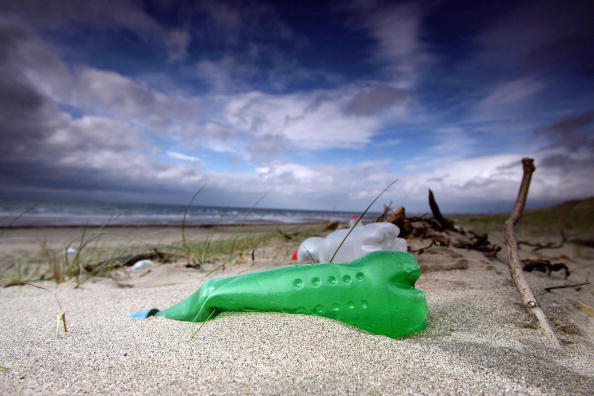Researchers discover 'extraordinary' levels of toxic pollutants in the deep sea


A free daily email with the biggest news stories of the day – and the best features from TheWeek.com
You are now subscribed
Your newsletter sign-up was successful
Scientists exploring the deepest part of the ocean discovered extremely high levels of a toxic pollutant that was banned in the late 1970s because of its harmful effect on the environment.
A robotic submarine dispatched to the Mariana trench in the Pacific Ocean found in the pitch black water tiny crustaceans that were contaminated with 50 times more toxic chemicals than crabs that live in very polluted rivers in China, The Guardian reports. "We still think of the deep ocean as being this remote and pristine realm, safe from human impact, but our research shows that, sadly, this could not be further from the truth," said Alan Jamieson of Newcastle University, who led the research. "The fact that we found such extraordinary levels of these pollutants really brings home the long-term, devastating impact that mankind is having on the planet."
In an article for the journal Nature Ecology and Evolution, Jamieson's team explains that the industrial chemicals, known as persistent organic pollutants (POPs), can interfere with reproduction; they accumulate in fat and are water-repellent, so they are found at the top of the food chain and stick to plastic waste. While it surprised scientists that POPs were found in the most inaccessible place on Earth, Katherine Dafforn, a marine ecologist at the University of New South Wales, pointed out to The Guardian we "still know more about the surface of the moon than that of the ocean floor," and the research by Jamieson and his team "has provided clear evidence that the deep ocean, rather than being remote, is highly connected to surface waters. Their findings are crucial for future monitoring and management of these unique environments."
The Week
Escape your echo chamber. Get the facts behind the news, plus analysis from multiple perspectives.

Sign up for The Week's Free Newsletters
From our morning news briefing to a weekly Good News Newsletter, get the best of The Week delivered directly to your inbox.
From our morning news briefing to a weekly Good News Newsletter, get the best of The Week delivered directly to your inbox.
A free daily email with the biggest news stories of the day – and the best features from TheWeek.com
Catherine Garcia has worked as a senior writer at The Week since 2014. Her writing and reporting have appeared in Entertainment Weekly, The New York Times, Wirecutter, NBC News and "The Book of Jezebel," among others. She's a graduate of the University of Redlands and the Columbia University Graduate School of Journalism.
-
 ICE’s new targets post-Minnesota retreat
ICE’s new targets post-Minnesota retreatIn the Spotlight Several cities are reportedly on ICE’s list for immigration crackdowns
-
 ‘Those rights don’t exist to protect criminals’
‘Those rights don’t exist to protect criminals’Instant Opinion Opinion, comment and editorials of the day
-
 Key Bangladesh election returns old guard to power
Key Bangladesh election returns old guard to powerSpeed Read The Bangladesh Nationalist Party claimed a decisive victory
-
 Nobody seems surprised Wagner's Prigozhin died under suspicious circumstances
Nobody seems surprised Wagner's Prigozhin died under suspicious circumstancesSpeed Read
-
 Western mountain climbers allegedly left Pakistani porter to die on K2
Western mountain climbers allegedly left Pakistani porter to die on K2Speed Read
-
 'Circular saw blades' divide controversial Rio Grande buoys installed by Texas governor
'Circular saw blades' divide controversial Rio Grande buoys installed by Texas governorSpeed Read
-
 Los Angeles city workers stage 1-day walkout over labor conditions
Los Angeles city workers stage 1-day walkout over labor conditionsSpeed Read
-
 Mega Millions jackpot climbs to an estimated $1.55 billion
Mega Millions jackpot climbs to an estimated $1.55 billionSpeed Read
-
 Bangladesh dealing with worst dengue fever outbreak on record
Bangladesh dealing with worst dengue fever outbreak on recordSpeed Read
-
 Glacial outburst flooding in Juneau destroys homes
Glacial outburst flooding in Juneau destroys homesSpeed Read
-
 Scotland seeking 'monster hunters' to search for fabled Loch Ness creature
Scotland seeking 'monster hunters' to search for fabled Loch Ness creatureSpeed Read
